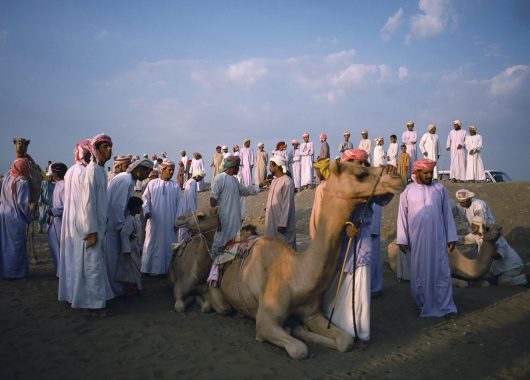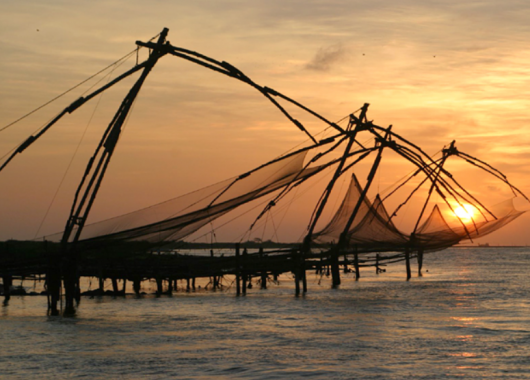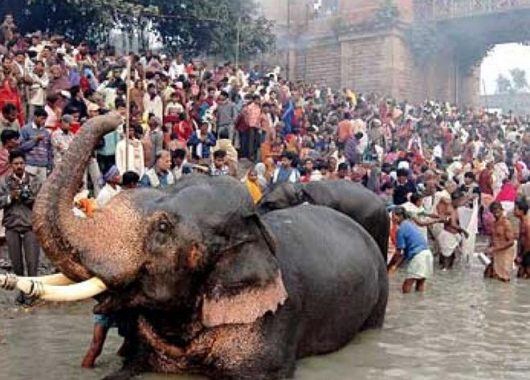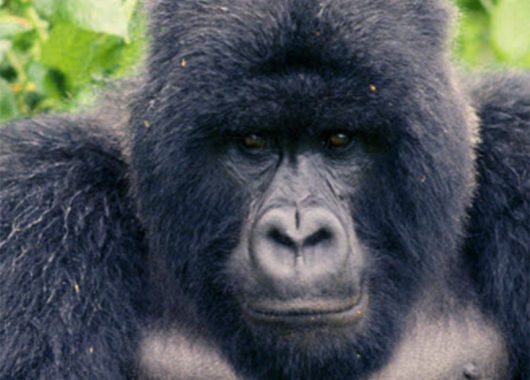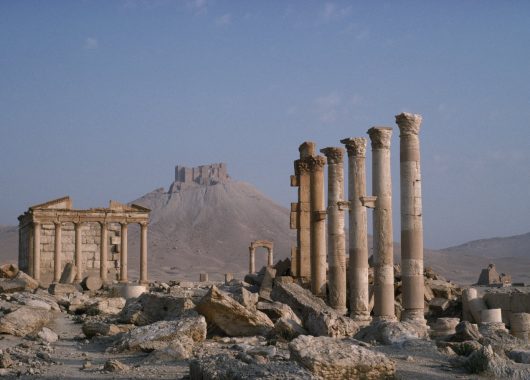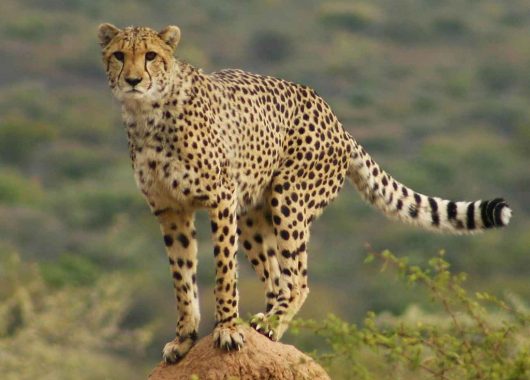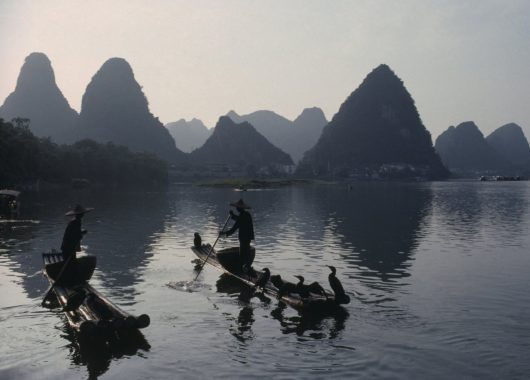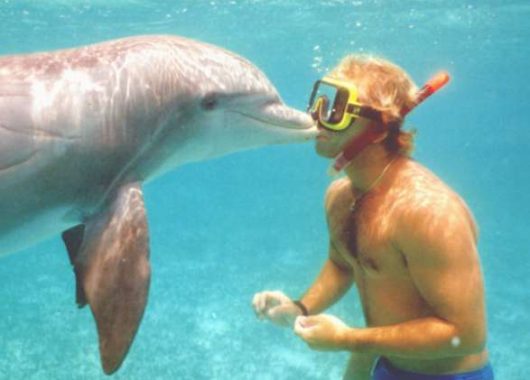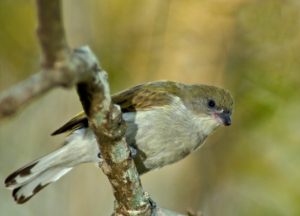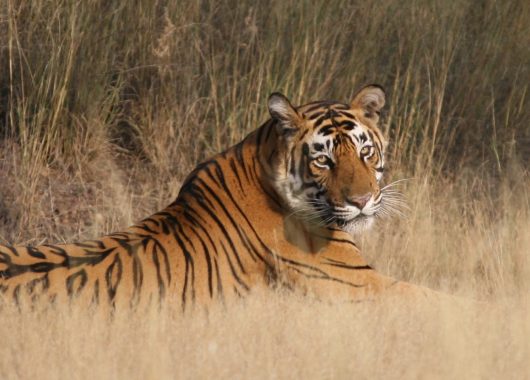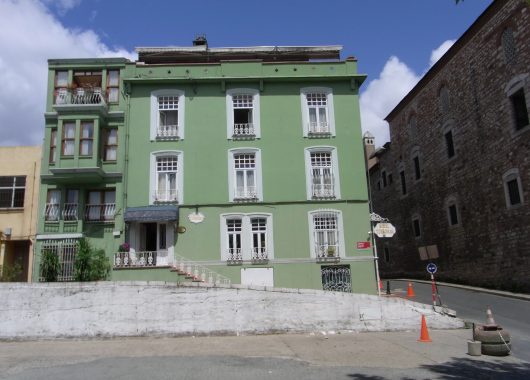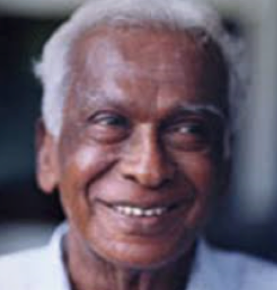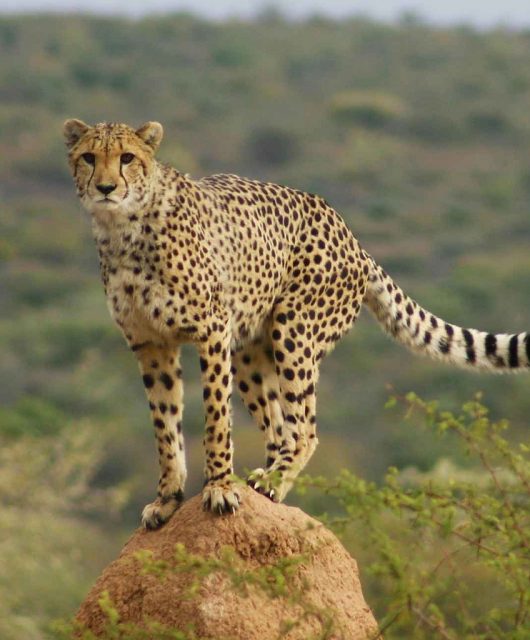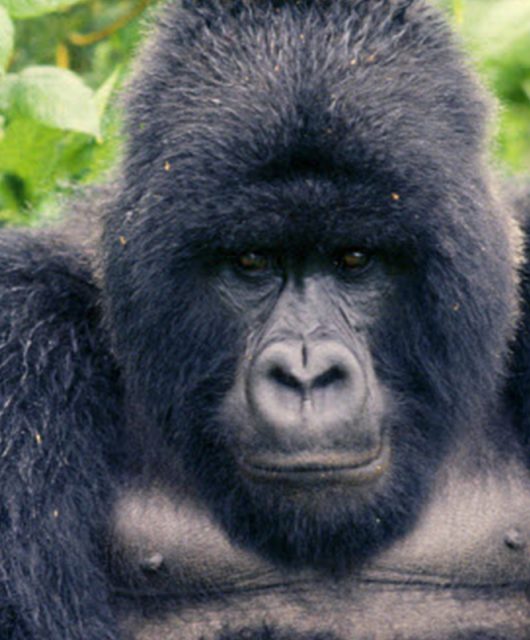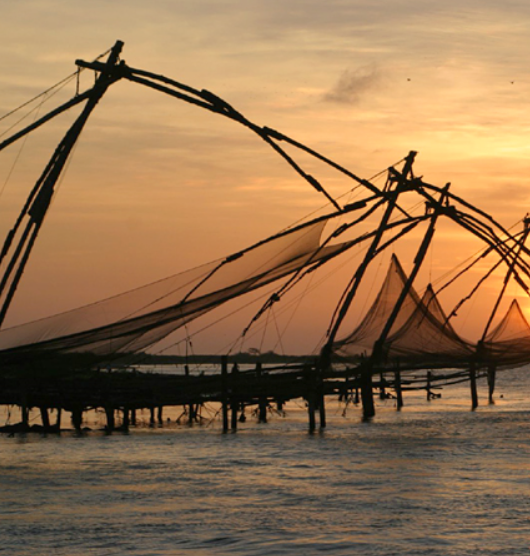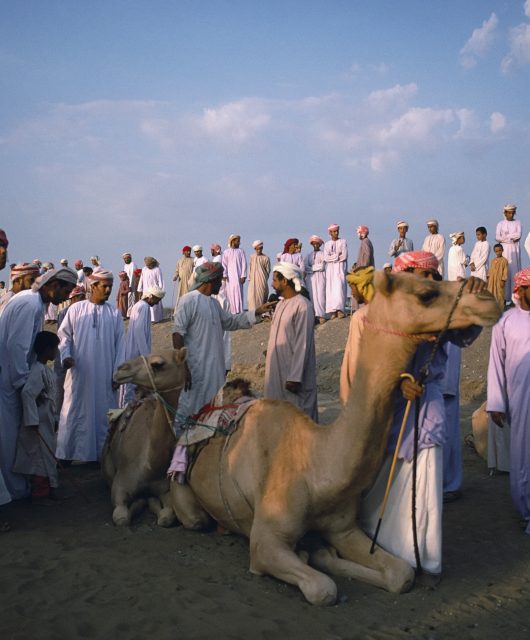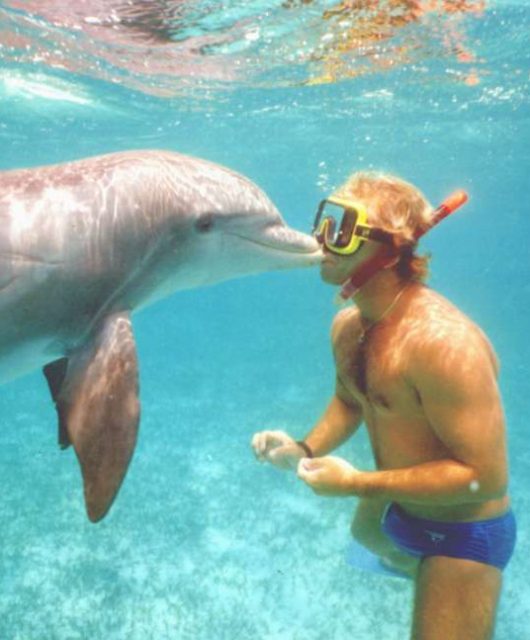A Long Walk in Tanzania
This article was first published in Harpers & Queen, March, 1992.
Although there were only two clients and myself on our Tanzanian safari, we were accompanied by a staff of forty, thirty of whom were porters. With this number we were able to manage, but on a few occasions we could have done with more. For we were walking in areas with no villages, no roads, and therefore no provisions. Apart from the fish, honey, and meat that our team were able to gather on our way, every item of food and equipment (including tables, hurricane lamps, a shower bag, a bread oven, and three trays of eggs) had to be carried on someone’s head.
Porters are rarely of much use in small numbers, for reasons which are apparent when you work out the maths. Porters need to eat, and therefore a lot of their capacity is taken with carrying their own food. Consider this: a porter eats at least 2 1/2lbs of food a day, so on a three-week safari, 52lbs of food will have to be carried just for him. This is quite a weight when you remember that on most airlines the luggage-allowance is 40lbs per person. If each porter is able to carry 60lbs on his head, then a porter’s average spare-capacity is only 8lbs. Thus it is easy to work out that, without reprovisioning, a walking-safari of more than three weeks is almost an impossibility.
We were also looked after by eight camp staff, who cooked, put up tents and so on. This number of staff would usually look after six people, so they weren’t all strictly necessary. But our safari leader, Richard Bonham felt that it would be unkind to dispense with any of his excellent team. The remaining staff were two armed game-scouts, seconded from the Park department.
Our days followed a precise pattern, not because we were in any way regimented – far from it – but because our timetable was dictated by the strength of the sun. We always slept in the open air on a sandy beach by a river. Just before 6 o’clock I would be woken by a gentle African voice saying “Hello”, and then hear the splash of hot water being poured into a collapsible washstand. I then crawled out of my mosquito net and started shaving, while gazing at the pink light spreading over the water. We then ate breakfast: porridge, toast, and – for the first few days – fresh fruit. While we were finishing our breakfast, the staff were already dismantling the camp, and arranging it in thirty orderly piles for the porters.
At almost exactly 7 o’clock we would leave for the morning’s walk while the air was still cool. We walked in single file: Richard Bonham, carrying a gun, led the way, followed by his three clients: myself, along with a city tycoon and his wife, an enthusiastic couple who never complained about anything, and enjoyed every moment. Behind us came one of the government game-scouts, also carrying a gun.
During the safari we always walked near three different rivers, the Luwegu, the Lakulla, and the Mbarangandu. All our camp-sites were pitched on the edge of a river (or a dried-up river where water could be dug) because no amount of porters can carry enough water for drinking, washing, and cooking. When the rivers meandered, we walked straight across the countryside, which was arid with silvery-grey leafless trees. Nearer the rivers, however, colour was added by huge park-like trees of the most brilliant green. The edge of the water was decorated with tall clumps of Borassus palms.
Our morning walks were not forced marches: Richard led us at an easy pace, and frequently we stopped to look at animals. Our experiences were quite different from game-spotting in the well-known reserves, where the animals are accustomed to people, especially to people in motor vehicles. In this part of the Selous we never saw a single vehicle during our three weeks, and the only human visitors are likely to be poachers – who are of course a threat to the animals. For these reasons the game is much wilder; one sees fewer animals, and often at a greater distance. However, when one does see them, the experience is more intense, and even the most minor sightings are thrilling. My heart missed a beat when I first saw the flapping red wings of the Purple Crested Lowrie; and I shall never forget chancing upon a spotted Cerval cat while it delicately hunted through the long grass.
Occasionally the animals would be unexpectedly tame. One hyena sauntered by, untroubled by our presence. An exquisite young impala actually approached to within a few yards, and then proceeded to groom herself. I was so over-excited that I took seventeen photographs.
If any interesting animals were a long way off, Richard was happy to make a diversion so that we could stalk them. One morning, through our binoculars, we spotted a distant pride of lion. Richard led us across the river, and then found a gully where we could stalk them without being spotted. Hunching down we crept along, but we stumbled onto a flock of Crowned plovers, who flew into the air with grating screeches. Almost immediately an unexpected lioness rushed across a nearby sandbank and into the bushes. However, creeping forward more cautiously, we saw that there were still four lions at the edge of the river. Richard now told us to slither forward on our stomachs, and as soon as we could peep over the reeds, we saw that four lion were still feeding on a dead hippopotamus. When we were about sixty yards away, a magnificently maned lion stood up. Richard whispered “He’s sensed we’re here, you’d better get up and take your photos”. The lion gazed at us long enough for me to take four snaps, and then they all bounded away. The resulting photographs are dull for others – any photograph from a car would have been far closer – but they were a thrill for me.
To return to our routine. By about 10.30 it would be getting noticeably hotter, and Richard would start looking out for a suitable campsite. The main attributes for our campsites were threefold: a clump of large green trees to provide the dense shade necessary at midday; proximity to water; and a sandy beach large enough for our entire caravan to settle during the evening and night. Ideally the site would also be beautiful – perhaps one where the evening supper would have a view over a palm-fringed bay.
As soon as we had found what we wanted, the camp staff would begin their work. One dug a hole in the sand, which provided fresh and pure water (though this would also be filtered). Another cleared the undergrowth with a machete, and then laid out two tarpaulins under the shadiest trees. Our luggage and the rolled-up beds (which acted as cushions) were then placed round the edge of the tarpaulins. A canvas wash stand was erected and filled with water, and two juxtaposed tables were covered with a red cloth and a collection of bottles, which would soon be joined by a pot of tea. Within a few minutes a wild tract of forest had been converted into a cosy patch of home. The staff always did all of this automatically, without any instructions from Richard. And I never once heard him raise his voice.
By the time we had drunk tea, the porters had shooed away any hippos, and it was possible to wash away the morning’s sweat by wallowing in the river. At 12.30 we were served lunch – perhaps macaroni cheese, or mince wrapped in a cabbage leaf. Considering that every single item of kitchen equipment had to be carried on someone’s head, the cooking was a triumph.
Our evening walks didn’t begin until 4.30, so there were now several hours to fill. As it wasn’t possible, thank goodness, to visit any temples or museums, the usual holiday decisions were hardly momentous: Shall I check the temperature before or after lunch? When shall I clean my camera lenses? Shall I read now, and sleep later, or vice versa? With so many hours, my reading plans were ambitious, but I found that with the temperature in the 90s, I fell asleep after only a few minutes. After a few days of struggle I abandoned my third (and now final) attempt at reading Proust.
In order to avoid sleeping for too long, I used to go for walks near the camp, and set myself a daily target of identifying two new species of bird. Richard was happy for us to go unaccompanied, provided that we stayed within shouting distance and didn’t walk through dense bush. I relished these times alone: when spotting an interesting animal it is possible to freeze immediately, which is impossible for a group. Therefore during my lunchtime stalking of tiny jewel-coloured birds I sometimes had delightfully close encounters with animals. Once a bambi-like bushbuck, usually a very shy animal, emerged from a thicket to nibble at leaves just in front of me; and on that same day I watched for several minutes while a whole family of mongoose stood on their hind legs to stare at me.
At about 4 o’clock I would refresh myself by wallowing again in the river, and then drink a cup of tea before our evening departure. The evening walks had a totally different character to those in the morning. As we weren’t moving to a new camp, we concentrated on watching the game and savouring the landscape. Richard usually took us up a suitable hill where we would sit quietly, gazing at the meandering course of the river and the huge views across the African bush. The light was entirely different in the evening – softer and more golden. It was always peaceful, as the wind had died down, and the birds were silent except for the occasional cawing of a Hadeda Ibis.
Our first survey of the landscape would often reveal nothing, but after a while animals would emerge, apparently from nowhere. Out of a wispy thicket, which you would think could hardly hide a squirrel, six elephant would slowly emerge. If we stayed up-wind of them, we could stalk them to within a few yards. But if any elephant got down-wind of us, they were stricken with panic. Until recently they suffered many years of poaching, during which more than 80,000 were slaughtered. We saw the evidence of this – huge white skulls everywhere. However, within the last two years the poaching has been massively reduced, partly because of the international ban on ivory sales, partly because of new ferocious anti-poaching laws.
Darkness fell at precisely 6.30, and at precisely this time Richard would lead us back to camp. By now the mess tarpaulins and tables had been moved to a sandy beach on the edge of the river. Nearby, our bed rolls had been laid on the sand, and the rectangular mosquito nets erected with freshly cut saplings. In the middle of the row of beds there would be one large tent for keeping luggage safe from rain or hyenas. Between our beds and the trees were the conical white mosquito nets of the camp staff, and further along the beach the porters would have lit their fires, around which they carve beds in the sand.
Just inside the line of trees the staff hauled up a shower-bag full of hot water; underneath the shower-bag they laid out fresh green branches as a floor. Although a shower-bag gives an astonishingly long and luxurious shower, I generally disdained it because this was a wonderful time of day to laze in the river. Dinner was at 7.30, and afterwards we would chat for a while; by 9.15 I was nearly always in bed, and was soon fast asleep despite the constant bellowing of belligerent hippos.
Nineteenth century accounts of African expeditions always seem to include a rebellion by disgruntled porters. By contrast our porters were always cheerful – which was lucky, as the safari wouldn’t have been such fun if we had been followed by thirty sombre faces. The porters were very poor and very dark-skinned. They were mostly dressed in rags, and few of them wore shoes. Sometimes they shared a pair – one friend wearing a left shoe, the other friend wearing a right one. They were so bereft of possessions that they eagerly awaited the moment when we emptied any glass bottle. The porters had been selected for us by the Game Department, which also sets their rate of pay – about one US dollar a day.
They are eager for this meagre salary (and naturally for a tip), as Tanzanians are wretchedly poor, even by the standards of Africa. The country has had an unfortunate history: In the earlier colonial era they were colonized by the Germans (who in their three African colonies were harsher than all the other colonial powers, including the Belgians). After the First World War Tanzania endured the more benign, but less efficient, rule of the British, which culminated in the spectacular failure of the ludicrous Ground-Nut Scheme. After Independence any hope of prosperity was destroyed by decades of soviet-style central planning.
During our safari the porters lived very simply, with an unvarying diet of maize-meal and kidney beans. Even tea was forbidden them, for the following reason. Most porters have an exceptionally sweet tooth, and tea drinkers would want at least two piled tablespoons of sugar a day. When you work out how much sugar would be needed for 30 porters for 21 days, you come to the astonishing figure of 78lbs. If the average porters spare-capacity is 8lbs, then in theory we would have needed another nine porters to carry the sugar. A safari could all too easily turn into the progress of a mediaeval monarch.
Although the porters lived so simply, and although at first their loads were very heavy, they were delighted to come on safari. It provides their only income of the year, and it is fun. They treated everything as a lark, and chattered constantly; like the British at a dinner-party, they seemed to abhor a conversational vacuum. They weren’t especially excited or frightened by the wild animals – indeed, when a nearby lion unexpectedly jumped up with a growl, they held rock-steady, not dropping a single load. Instead, their biggest excitement was when we arrived at the top of a cliff. Because they come from a flat featureless countryside, they were delighted with the novelty of a steep precipice. And they seemed to find the three Westerners more interesting than any animal.
Although uncomplaining, the porters did make one repeated demand. They wanted meat. Their home territory is plagued by the tsetse fly so they can’t keep any livestock, not even a goat. As a result they crave meat, and rarely get it from one year end to another. Every day they asked for meat.
Supplying this meat, though, wasn’t entirely simple. With forty hungry mouths to feed, a mere antelope would be nowhere near sufficient, and the only really satisfactory animal would be a buffalo, which would need to be killed reasonably near a camp (it’s not possible to carry a 1,500 pound carcass very far). And the camp would have to be a pleasant one, as we would need to spend two nights there – enough time to smoke or dry the little meat that would be left. Most of the buffalo we saw were in large herds, but the buffalo should preferably be a lone one, as a wounded animal might merge in among the others and become indistinguishable. Finally, the buffalo must be a male, so the breeding stock isn’t diminished. Many days passed before the ideal combination arrived, but when they got their meat, the porters were visibly delighted, and their spirited fireside gossiping lasted long into the night.
The hunt for the buffalo wasn’t the only occasion when we heard gunfire: on a dramatic, sad day we heard several shots being fired. One morning we spotted a party of fish poachers in the distance. The game scouts wanted to capture them, so they went off with Richard to prepare an ambush. Richard predicted that the poachers would run away, even at gunpoint. We stayed behind and watched through our binoculars while the unwary poachers continued fishing with a net. After about twenty minutes, there was a fusillade of shots, and most of the poachers rushed across the river, escaping into the undergrowth. One of them, however, was caught – a fifteen-year-old boy, barefoot, malnourished, and dressed in tatters. He was a picture of misery, and it was impossible not to feel sorry for him: after all, his ancestors had probably been driven out of this countryside, when it was made a park, and he had needed to walk bare-foot for four days to catch a few small bony fish.
For a while our eyes were opened to the crueller side of Africa – so easy to ignore when you are living the blissfully unreal life of a safari. The game-scouts said that they would have shot directly at the poachers unless Richard had ordered them to fire over their heads. And when our normally-jolly porters reached the captured boy, some of them turned into bullies. I dread to think what would have happened if Richard Bonham hadn’t been there. Even so, the boy was quickly and roughly looted of his few possessions – a tiny screw of tobacco, a few dried fish, and a fishing net. It was horrible to hear from the game-scouts that he would receive a minimum sentence of seven years.
The next sad drama happened almost immediately. When walking through some riverine woods we entered a grove where we saw a hippo grazing. Hippos are rarely found on land during the day (they graze at night), but because the river was exceptionally low, we frequently encountered them. On land they feel defenceless, and are therefore prone to charge. Although placid in appearance they are aggressive, and often deliberately inflict savage wounds on their own kind. An extreme example of their aggressiveness was recorded on the Natal coast, where a hippo plunged into the sea, seized a 300lb shark, and then trampled it to death. And although hippos look bulky, they can run faster than Carl Lewis.
I took some photographs of our placid-looking hippo. At this stage it hadn’t seen us, and we could easily have retreated to take another route. But Richard wanted to shoo it back into the river, as there was a danger that the porters behind us might bump into it and get attacked. So he clapped his hands. But, instead of the hippo ambling away – which is what all the previous ones had done – it immediately charged us.
Richard shouted, “Run”. I turned, ran a few paces, tripped on a root, and fell flat on my face. With my nose still in the dust I heard a loud bang. Richard had waited to see if it was a false charge, and then shot at the hippo when it was only ten yards away. The bullet deflected the charge, and the hippo dropped dead close behind us. We all felt sad.
Happily, the evening brought cheering news. The young poacher had escaped – taking with him one of our precious machetes. From now on all our excitements would be pleasurable. The best of all was a remarkable view of wild dogs. While shaving one morning the tycoon had spotted a distant splash in the river. Looking through binoculars, he shouted that a pack of wild dogs were chasing impala. Even a glimpse of wild dog is extraordinarily lucky: they have been almost exterminated by stock-holding farmers and the diseases of domestic dogs. And even where still surviving, they are difficult to find because they roam a huge territory – as much as a thousand square miles. The Selous is one of the last areas where they thrive.
Although detested by livestock owners, wild dogs aren’t unpopular with everyone. Our game scout, Mtele, told us that his hunter-gathering village liked wild dogs because it was easy to drive them away from a kill. Indeed, he said that when the villagers had taken a dead antelope away from wild dog they would roast one of its limbs, then salt it and put it back where the dogs has made their kill. This strategy made it more likely that they would kill again in the same area.
This story seemed a touch far-fetched, even though Mtele usually talked good sense. Detecting a flaw, we therefore asked him why the vultures and hyenas didn’t eat the roasted joint first. Without pausing, he replied that the villagers would put a stick in the ground by the joint; at the top of the stick they would attach a piece of cloth which would frighten off vultures and hyena, but wouldn’t bother the dogs.
When we looked again through our binoculars, the chase appeared to be in slow motion: the impalas were so exhausted that they hardly appeared to be trying to escape, and were soon caught, one on the edge of the river, the other on the bank. The dogs started eating them while they were still alive and struggling. It was an agonising sight, but it is now believed that an emergency excretion of endorphins probably anaesthetises the dying antelopes during these few awful minutes.
Not long after the kill, the dogs abandoned these two impala in order to eat a third one that they had killed out of our sight. This gave us the marvellous opportunity of rushing down to the river and hiding under a bush opposite one of the carcasses. Hardly were we in place than a splashing alerted us to the return of seventeen dogs. For the next half-hour we had a spectacular view of them, so close that we could hear the tearing of the flesh. After stripping the carcass the dogs didn’t settle to sleep, but instead played like puppies, some of them rearing on their hind legs, almost as if they were boxing each other; others would stalk each other; and one of them liked to jump off a ledge, belly-flopping into the water.
After a while the dogs suddenly looked intently down river and then quietly filed away. Richard thought they had sensed the arrival of hyenas, which are never far behind a kill. Hyenas keep one eye cocked on the sky so that they can spot the arrival of vultures; and vultures never miss a kill, because they form a careful grid-pattern in the sky, ensuring that every inch of ground is scrutinised.
According to the celebrated naturalist, Hugo van Lawick, hyenas also like to follow wild dogs because they like to eat their dung. So great is their addiction that they sometimes try to creep up to sleeping wild dogs in order to lick their bottoms.
This hasn’t been their only cleaning service: they have often been used for the disposal of ailing and aged human relatives. The hyenas do a thorough job, crunching up the bones as well as the flesh – they have the most powerful jaws of any animal. Richard told us that one of his Masai house-staff, when a sickly baby unable to suckle, had been put out for the hyenas. The next morning his mother went to investigate, and found that not only had he not been killed, but that he now began to suckle. He is now an ebullient room steward, although still small – only 5ft 4inches. Many Tanzanian communities often give people vivid and appropriate nicknames and, ever since the hyena episode, he has been known by no other name except Rubbish.
![]()
Articles by John Hatt
Other Articles
![]()
![]()

